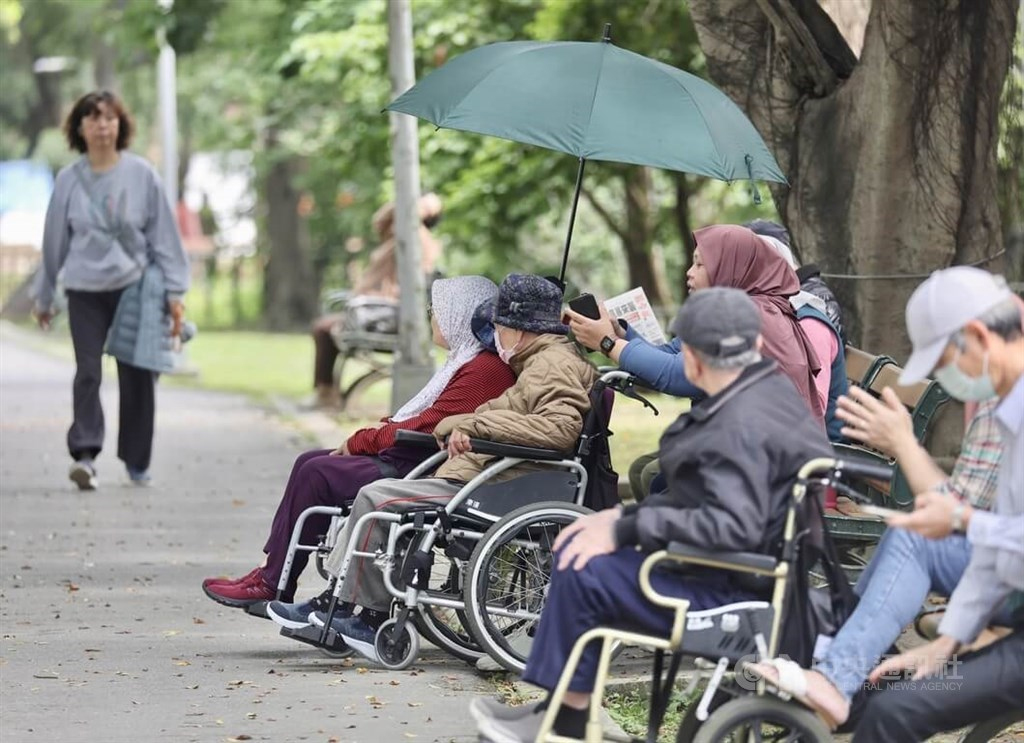Taipei, April 8, 2025 – In a significant shift from the traditional live-in caregiver model, Taiwan’s Ministry of Labor (MOL) has launched a trial program allowing families with urgent or short-term caregiving needs to hire dispatched migrant caregivers via registered NGOs. This “Multi-Companion Service” aims to ease caregiver burdens for households requiring flexible, temporary assistance — especially those not ready or eligible for full-time support.
A New Model for Taiwan’s Aging Society
Taiwan faces a rapidly aging population and growing demand for long-term care, with estimates showing over 20% of the population will be aged 65+ by 2026. The government has expanded its long-term care policies over recent years, but gaps remain — especially for families navigating temporary crises such as post-surgical recovery or short-term disability.
The newly launched Multi-Companion Service addresses this by providing hour-based care from migrant workers, departing from the rigid full-time live-in employment system. This initiative aligns with international trends toward more community-based, modular caregiving options.
Key Features of the Program
- Care Duration: Families can hire caregivers for a minimum of four hours and up to 24 hours per session (24-hour bookings must include a mandatory 10-hour rest period for workers).
- Coverage Areas: The service is currently offered in Taipei, New Taipei, central, southern, and eastern Taiwan, through six certified NGOs:
- Red Heart Association (Taipei & New Taipei)
- Yunghsin Social Welfare Foundation
- Tung Ting Charity
- Nantou Xin Xi Fu Care Association
- Association of Taiwan People Social Welfare (South)
- Hualien Association of Family Caregivers (East)
- Care Cost:
- NT$1,000–NT$1,250 for 4-hour shifts
- NT$3,000–NT$3,500 for 24-hour shifts
- Travel and service-specific fees may apply
- Worker Rights: Migrant caregivers are employed under the Labor Standards Act, receiving monthly salaries of at least NT$28,590, which ensures fair labor treatment and contract stability, even if they serve multiple households.
- Eligibility: Families with:
- A member holding a disability or severe illness certificate
- Post-operative patients (within three months)
- Individuals assessed with long-term care needs (levels 2 to 8)
- Limitations: The service is not yet available in Penghu, Kinmen, and Matsu, though future expansion is possible.
Addressing Criticism and High Expectations
Originally scheduled for March, the program was delayed due to public concerns over cost transparency and affordability. While MOL officials justified the pricing as necessary to ensure labor rights and service quality, advocacy groups have urged the government to explore subsidies or sliding-scale pricing to expand access.
Labor experts also stress the importance of monitoring NGO accountability and worker protections, as the dispatched model introduces new layers of employment complexity that may be vulnerable to exploitation if not properly managed.
Government’s Broader Policy Goals
This initiative is part of the government’s broader “Long-Term Care 2.0” strategy, aimed at decentralizing elder care, improving care quality, and reducing reliance on institutionalization. If successful, it could pave the way for permanent changes to how Taiwan integrates migrant workers into its care economy.
Su Yu-kuo, Division Chief of the Workforce Development Agency, said the trial program will undergo close evaluation. “We are looking to build a new system that’s not just convenient for families but also protects the dignity and rights of migrant workers,” he said.
FAQs:
Who is eligible to apply for the service?
Families with a member holding a disability certificate, recent surgery (within three months), or assessed long-term care needs (levels 2 to 8) are eligible.
Can I book a caregiver for just a few hours?
Yes, the minimum booking is four hours, making it flexible for families who need only short-term assistance.
Are caregivers protected under Taiwanese labor laws?
Yes. All migrant workers in the program are covered under the Labor Standards Act, ensuring fair treatment and pay.
What is the cost and what does it include?
Costs range from NT$1,000 to NT$1,250 for 4 hours, and NT$3,000 to NT$3,500 for 24 hours. This excludes travel fees and special care charges.
How does this differ from traditional caregiver employment in Taiwan?
Traditionally, foreign caregivers are employed full-time and live with the care recipient. This pilot allows hour-based, dispatch-style caregiving, offering more flexibility.


